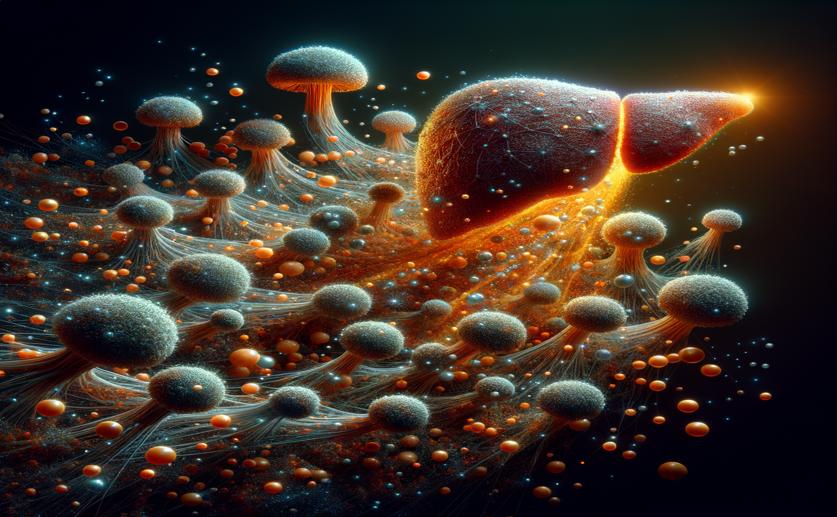
Mushroom-Derived Nanoparticles Halt Liver Cancer Spread
Jenn Hoskins
5th April, 2024

Image Source: Natural Science News, 2024
Key Findings
- Researchers developed a new, natural nanoparticle from a medicinal mushroom to target liver cancer
- These particles can be taken orally and have shown to slow down cancer cell growth and spread
- The particles also potentially enhance the immune system's ability to fight tumors
References
Main Study
1) Oral exosome-like nanovesicles from Phellinus linteus suppress metastatic hepatocellular carcinoma by reactive oxygen species generation and microbiota rebalancing.
Published 2nd April, 2024
https://doi.org/10.1039/d4nr00345d
Related Studies
2) Management of HCC.
3) Are there opportunities for chemotherapy in the treatment of hepatocellular cancer?
4) A silk fibroin based hepatocarcinoma model and the assessment of the drug response in hyaluronan-binding protein 1 overexpressed HepG2 cells.
5) Ginseng-derived nanoparticles alter macrophage polarization to inhibit melanoma growth.



 24th January, 2024 | Phil Stevens
24th January, 2024 | Phil Stevens